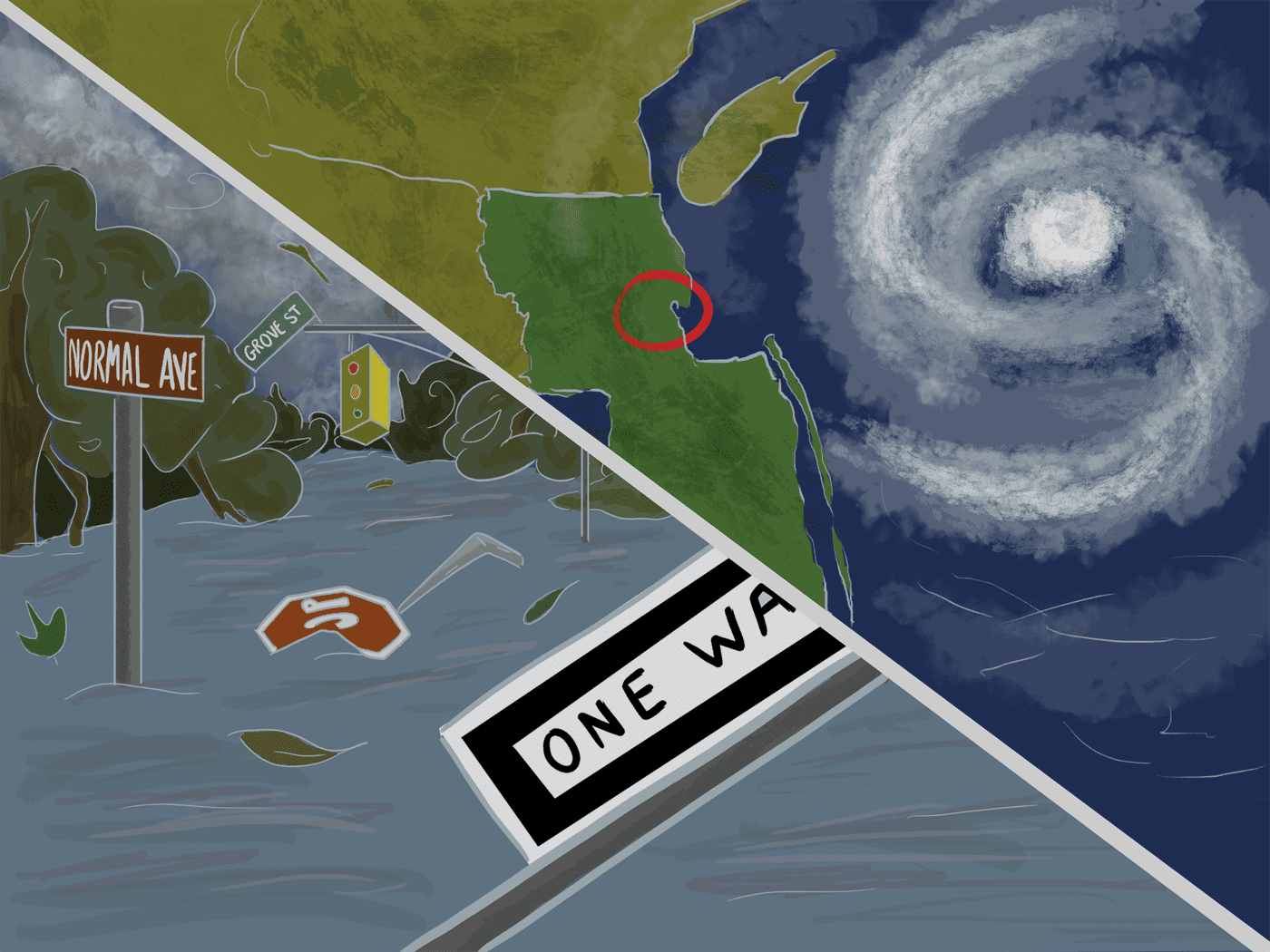Hurricane Sandy displaced tens of thousands of people and was one of the most destructive storms in recent history. Movements led by the Jersey Strong Foundation brought individuals together to support one another and mourn the devastating loss, but tensions around hurricane season continue to pervade the tri-state area.
Atlantic hurricane season started on June 1, 2019 and ends on Nov. 30, 2019. According to an article by CNN, the National Weather Service defined hurricanes as a “tropical cyclone with maximum sustained winds of 74 mph or higher.”
Most recently, in Sept. 2019, Hurricane Dorian caused an estimated 56 fatalities and over 600 people are still missing in the Bahamas. It’s unclear if hurricanes are predicted to affect the surrounding areas of Montclair State University, but some researchers believe there will be an increase in hurricanes due to rising ocean temperatures.
In the areas where there was a warning of potential flooding and rainfall, people were advised to have supplies ready such as food, drinks and plenty of clothing. However, many members of the community are still unprepared.
During severe weather conditions, such as a powerful hurricane, Montclair State could be struck with or without any warning. Students who live on campus will have difficulty going back home and could be trapped in their apartments or dorms.
Last year several students were impacted by Hurricane Florence, as described in a previous article from The Montclarion.
There are different ways in which students on campus could protect themselves from a hurricane. Kylie McCoy, a junior public health major, plans to stock up on food and remain in her dorm in case of any severe weather.
“If [a] hurricane struck campus I would hide under my desk or bed,” McCoy said. “I could also hide in the bathroom since its away from the window.”
In 2013, McCoy’s family beach house in Long Island was destroyed by a hurricane. It took over six years to rebuild and the structure had to be raised 12 feet to prevent future damage. Luckily, McCoy’s family members do not currently live in a state where there is a hurricane occurring now.
Jessica Negron, a sophomore psychology major, has not been impacted by a hurricane but she still considers it a possibility.
“I would try and go home depending on the weather conditions, but probably not because my house is in Trenton,” Negron said. “The safest place to hide is in the bathroom or underneath the bed.”
Negron shared that she will be stocked up with food, drinks and a flash light in case there are extended power outages. She understands the repercussions that severe weather can have on the surrounding area.
“My cousins, aunts and uncles use to live in Puerto Rico during hurricane season in fall 2017 and then moved to different locations such as Chicago, Trenton and Connecticut [in] winter 2018 after their houses were destroyed,” Negron said.
Passant Mohamed, a junior visual communications major lives on campus and hopes in the case of an emergency, Montclair State will be prepared.
“The campus should prepare something for students who dorm or should provide instructions on what to do,” Mohamed said. “It is not safe to drive home during hurricane season.”
In 2012 while Hurricane Sandy was striking New Jersey, Mohamed was in Egypt and had lost connection with her father for two weeks due to widespread power outages.
Montclair State’s website states that “the university will make every effort to close before dangerous travel conditions arise.” However, as weather can be unpredictable, it’s important to make choices that will keep you safe.



